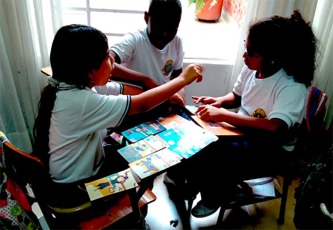Elsevier,
Contemporary Psychodynamic Psychotherapy: Evolving Clinical Practice, Volume , 18 June 2019
This book chapter advances SDG 3 and 10 by reviewing most relevant psychodynamic and developmental theories and empirical analyses for LGBT communities.
The Sustainable Development Goals and the Paris Agreement, as the two biggest climate action initiatives, address the need to shift towards a fully sustainable energy system. The deployment of renewable energy, especially solar and wind power, decreases carbon dioxide emissions, but presents issues of resource intermittency. In this study, a cost-optimised 100% renewable energy based system is analysed and quantified for the Americas for the reference year 2030 using high spatially and temporally resolved weather data.
Currently, learning technologies are transforming and modifying educational systems with impressive progress of Information and Communication Technologies. Furthermore, when these technologies are available, accessible, usable and affordable, they represent more than just a transformation for people with disabilities, they represent real opportunities with access to an inclusive education and help to overcome the obstacles they meet in classical educational systems.
It has long been established that the spatial scale of inquiry affects the ecological patterns that are revealed. However, studies of the ecological drivers underlying the assembly of soil animal communities rarely adopt a multi-scale perspective. Here, we quantified the distribution of oribatid richness along a chronosequence of temperate hardwood forests in a deglaciated region of eastern North America and analyzed variation in oribatid community structure at two grain sizes: 0.1 m2 and 900 m2, and two spatial extents: 20–150 m and 80–420 km.
This podcast dives into the steps companies can take to improve diversity and inclusion efforts. The topics covered help employers advance SDG 8 (decent work and economic growth) and SDG 10 (reduced inequalities).
This essay shares findings from an exhaustive review of the English-language published scholarship on integrating gender and sexual diversity in teacher education (GSDTE) since 1982. The 158 sources substantiate a largely USA-based field with an array of studied pedagogies and a citational reliance on statistics that reveal the school-sited suffering of gender and sexual minority youth.
Although it may be an "invisible disability", people with all types of diabetes are protected under the Americans with Disabilities Act. This chapter contributes to SDG 3 by addressing the patterns, risk factors and prevention tactics for the epidemic of diabetes in the US population.
Study objective: We estimate emergency department (ED) use differences across Medicare enrollees of different race/ethnicity who are residing in the same zip codes. Methods: In this retrospective cohort study, we stratified all Medicare fee-for-service beneficiaries aged 66 years and older (2006 to 2012) by residence zip code and identified zip codes with racial/ethnic diversity, defined as containing at least 1 enrollee from each of 3 racial/ethnic groups: Hispanics, (non-Hispanic) blacks, and (non-Hispanic) whites.
Employers today must plan for an aging workforce and make a strong effort to attract and retain older workers. It is critical for employers to take note of the value older workers can bring to an organization and consider the following steps to address their needs within the context of workforce planning.

